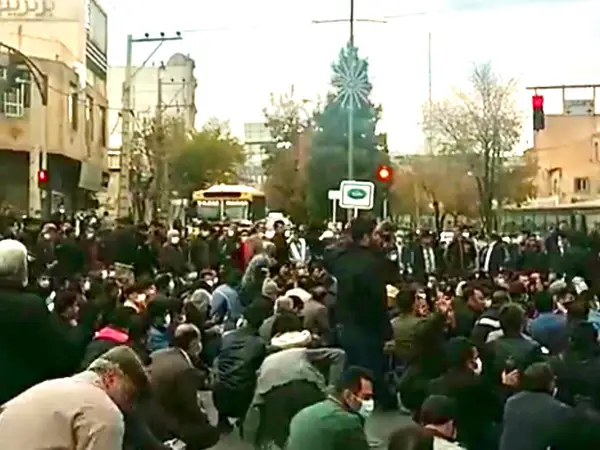Promises by the government to deliver water to Iran’s Esfahan Province amid protests are fueling regional tensions between the wealthy region and its neighbors.
After a massive water protest Friday in the city of Esfahan, the capital of the province, its representatives in the parliament have demanded acceleration of government projects for transferring water from the neighboring province of Chahar Mahal and Bakhtiari.
Farmers in Esfahan Province have been protesting shortage of water for nearly two weeks now. On Friday thousands of residents of the provincial capital joined the farmers who have pitched tents in the dry bed of the city's Zayandeh Roud.
Authorities who blame this year's drought for the exacerbation of water shortage have kept promising to take action to resolve the long-standing problem and to compensate the farmers who have not been able to sow autumn crops.
The promises have not only failed to send the farmers and their supporters home, but have also given rise to dissatisfaction and protests elsewhere, namely the neighboring Chahar Mahal and Bakhtiari Province from where water should be diverted to Esfahan.
Videos posted on social media Sunday showed hundreds of people in the largely agricultural and less-developed Chahar Mahal and Bakhtiari marching Sunday in front of the Governor's Office in the provincial capital, Shahr-e Kord.
"No Water Can Be Taken from Chahar Mahal," protesters chanted in Shahr-e Kord and demanded the governor to respond to their calls. Protesters who have vowed to return Monday to continue their protest also chanted slogans against "cowardly authorities" and called on the people of neighboring Lorestan and Khuzestan provinces to support their cause.
The protest rally in Esfahan on Friday and Shahr-e Kord on Sunday are quite unique. This time, unlike any previous protests such as water crisis protests in Khuzestan in July, security forces did not visibly interfere and try to disperse the massive crowds. Also, for the very first time, the local state-run channels and the national news channel aired some live images of the demonstrations.
The recent water protests took place as many Iranians marked the second anniversary of the bloody November 2019 unrest. In 2019 protests that quickly spread across the country were heavy-handedly suppressed by the security forces who killed hundreds of unarmed people. After two years, no one has been accountable, and the protesters have been accused of serving foreign interests and destroying property.
The state media and hardliners this time have been referring to the protesters in Esfahan as "well-behaved". "Nobody called the protesters deviant and hostile this time," conservative Alef website noted Sunday in a commentary entitled "Lessons of the Protest Rally in Esfahan".
Many believe security forces are showing restraint for the fear of inciting a strong reaction by the people, still mourning the victims of the November 2019 protests. However, Journalist Hamid Mafi said in a Twitter post Sunday that satisfying 'the well-behaved' people of Esfahan at the cost of their neighbors could give rise to a series of protests in nearby provinces of Chahr Mahal and Bakhtiari, Lorestan, and Khuzestan. Such future protests will reveal the extent of the respect for the right to protest and authorities' tolerance, he wrote.
